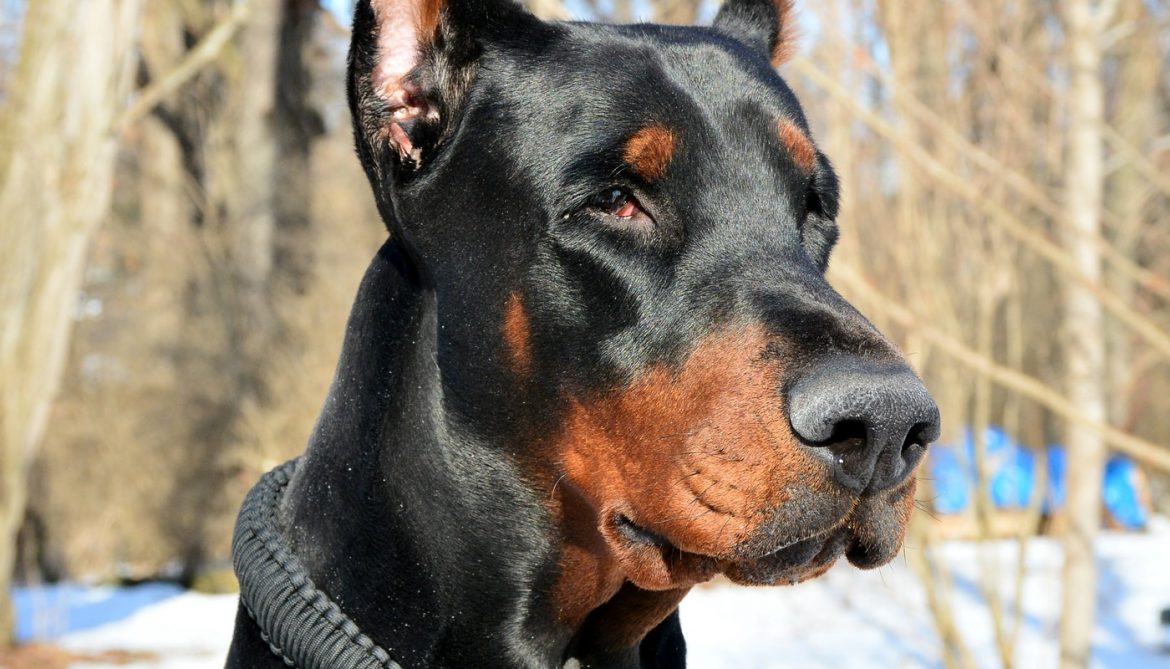A breed so loyal that people trust it with their money – the Dobermann or the Doberman Pinscher is a relatively new breed of dog bred only a hundred and fifty years ago.
History
The breed’s history dates back to 1890 in Germany, where a tax collected named Karl Freidrich Louis Doberman wanted a dog to protect him, and the money that he carried when he went through some sketchy parts of town and that was the start of the 5th most intelligent breed of dog, the Dobermann. The Dobermann we know today comes from the German Pinscher, Rottweiler, Black Greyhound, Great Dane, Weimaraner, German Short Haired Pointer, and German Shepherd. Phew! An exhaustive list as it is, it did help to create this man-made masterpiece.
About the Breed
Nutrition
Dobermans need a protein-rich diet, but since they are known to suffer from kidney disease, the protein must be in an optimum proportion. If you live in a cold area or experience cold winters, you might want to increase the fat content in your Dobermann’s diet to help them keep warm since they are sensitive to cold weather. Dietary fibre, vitamins, minerals and supplements to help with strong bones, good immunity, and healthy digestion are vital from puppyhood.
Grooming
Weekly coat brushing is all they need. You can also trim their nails, clean their ears, and brush their teeth on the same day as you decide to brush their coat.
Exercise
Dobermanns are athletes of the dog world, and that speaks for itself – they thrive on exercise. If you give your Dobermann every possible exercise out there; he will be far easier to manage indoors as well as during training. A Dobermann needs a minimum of two hours of vigorous exercise that gets his muscles moving and his heart pumping. You can also give your Dobermann mental stimulation in the form of toys, treasure hunt, and agility to keep his mind occupied and away from destructive behaviour.
Training
Training a Dobermann is easy because of their eagerness to please their parents. However, it is best to challenge them at every obedience training session so that it doesn’t become too easy or boring for them. You can choose to take the trick to the next level or combine a few tricks to form a new one.
Health
Dobermanns suffer from bloat, hip dysplasia, elbow dysplasia, arthritis, and several other inherited breed defects. The only way to prevent this is to adopt from a reputable breeder (after checking the health of the parents), feed nutritious, age-appropriate food, and give sufficient mental and physical exercise.
Temperament
Dobermanns are loyal to their family and would do anything for them! However, they aren’t friendly to strangers and other animals. They are known to be calm, confident, even-tempered, obedient and gentle inside the house, as opposed to being aloof, instinctive, protective, and alert outside home.
Should I get a Dobermann?
Dobermanns are excellent guard dogs – one among the top three of the best guarding dogs.
They need little to no grooming
They are very loyal to their family
They do well in hot weather but are sensitive to the cold.
They are easy to train
Is it the right breed for me?
They thrive on exercise.
Dobermanns need to be trained and socialised from day one
They are known to have many health problems
They suffer from separation anxiety
Dobermanns aren’t the best choice for novice dog owners because of their personality.
They do not do well in a household with other pets.
Known for its fearlessness, agility, strength, and loyalty, this versatile breed is the cream of the crop in the dog world.
,

